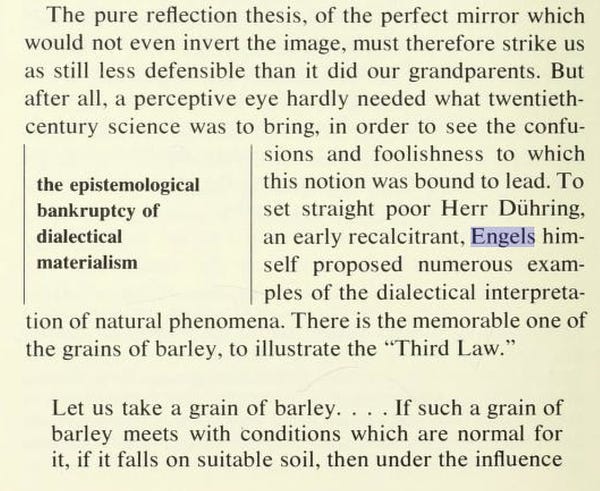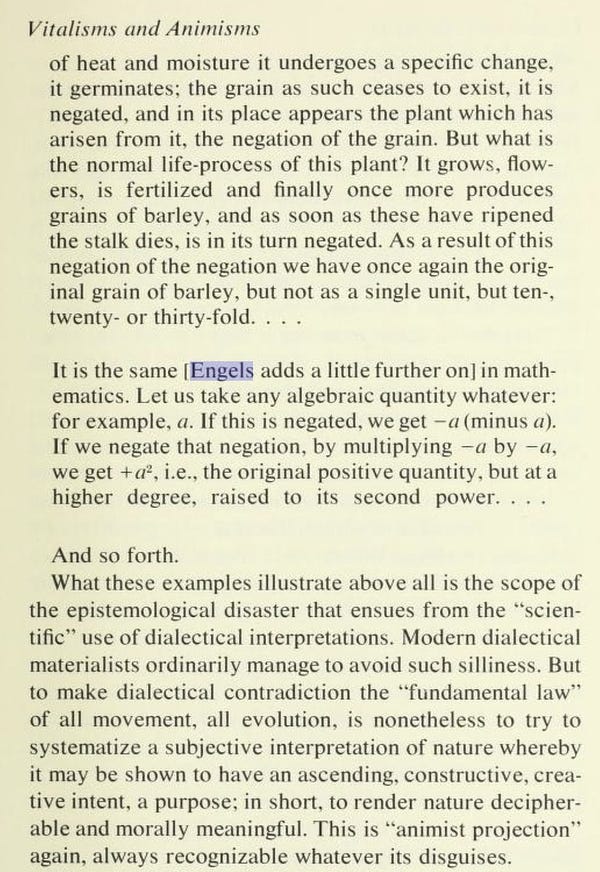Þe First Paragraph of My Forthcoming "Slouching Towards Utopia"; & BRIEFLY NOTED: For 2021-11-29 Mo
Things that went whizzing by that I want to remember:
First:
The opening paragraph of Slouching Towards Utopia: An Economic History of the Long 20th Century, 1870-2010, forthcoming from Basic Books on September 6:
What I call the ‘long twentieth century’ started with the watershed boundary-crossing events of around 1870—the triple emergence of globalization, the industrial research lab, and the modern corporation—which ushered in changes that began to pull the world out of the dire poverty that had been humanity’s lot for the previous ten thousand years, since the discovery of agriculture. And what I call the ‘long twentieth century’ ended in 2010, with the world’s leading economic edge, the countries of the North Atlantic, still reeling from the Great Recession that had begun in 2008, and thereafter unable to resume economic growth at anything near the average pace that had been the rule since 1870. The years following 2010 were to bring large system-destabilizing waves of political and cultural anger from masses of citizens, all upset in different ways and for different reasons at the failure of the system of the twentieth century to work for them as they thought that it should.
A note: In the Director’s Cut, the there is more. In the Director’s Cut the rest of the 1st paragraph would be:
The end of American Exceptionalism—where the U.S. was near-universally regarded as an important model for at least some degree of emulation—an apparently permanent productivity growth-rate downshift; the failure of global north institutions to adequately deal with the Great Recession that started in 2008, the COVID-19 plague, or global warming; the rise across the globe of political movements that are called (politely) fascist-adjacent, neofascist, or (impolitely) fascist: all these told us that the Grand Narrative of the long 20th century could no longer be made to fit. It was a new set of stories, needing to be made comprehensible by a new Grand Narrative or Narratives. What it or they are we cannot yet know.
But the Director’s Cut is in general a bloated and unwatchable mess for anyone except the most die-hard fan.
My editors Brian Distelberg and Tom LeBien think—I believe correctly—that I cannot afford, in the first paragraph, what turns into a digression on the end of the long 20th century that does not drive the principal thread of the book forward. So these two sentences have been left on the cutting room floor.
One Video:
Janet Stephens: The Hairstyle of Aggripina Maiora <https://www.youtube.com/watch?v=X1ZRgz-Pdh4>:
Very Briefly Noted:
Zhenyi Tan: Launch: Vinegar: ‘the YouTube player situation has gotten bad enough that we need another extension to fix it. That’s where Vinegar comes in. Vinegar also replaces the YouTube player (written in who-knows-what) with a minimal HTML <video> tag… <https://andadinosaur.com/launch-vinegar>
Rakesh Bhandari: ‘Here on Engels’ b-day is Jacques Monod’s dismissal of Engels as a metaphysical animist disguised as a “scientific” dialectical materialism…
Paragraphs
Kwame Anthony Appiah: Digging for Utopia: ‘[Graeber and Wengrove’s] thesis that Europeans, before the Enlightenment [and their encounter with the Indigenous Critique], lacked the concept of social inequality… is plainly wide of the mark. Look south, and you find that Francisco de Vitoria (circa 1486–1546), like others of the School of Salamanca, had much to say about social inequality; and he, in turn, could cite eminences like Gregory the Great, who in the sixth century insisted that all men were by nature equal, and that “to wish to be feared by an equal is to lord it over others, contrary to the natural order.” Look north, and you find the German radical Thomas Müntzer in 1525 spurring on the Great Peasants’ Revolt: "Help us in any way you can, with men and with cannon, so that we can carry out the commands of God himself in Ezekiel 14, where he says: ’I will rescue you from those who lord it over you in a tyrannous way’”…
LINK: <https://www.nybooks.com/articles/2021/12/16/david-graeber-digging-for-utopia/>
Nicholas V (1452): Dum Diversas: ‘We… granted… to… King Alfonso… to invade, search out, capture, vanquish, and subdue all Saracens and pagans whatsoever, and other enemies of Christ wheresoever placed, and the kingdoms, dukedoms, principalities, dominions, possessions, and all movable and immovable goods whatsoever held and possessed by them and to reduce their persons to perpetual slavery, and to apply and appropriate to himself and his successors the kingdoms, dukedoms, counties, principalities, dominions, possessions, and goods, and to convert them to his and their use and profit—by having secured the said faculty, the said King Alfonso, or, by his authority, the aforesaid infante, justly and lawfully has acquired and possessed, and doth possess, these islands, lands, harbors, and seas, and they do of right belong and pertain to the said King Alfonso and his successors…
LINK: <https://doctrineofdiscovery.org/dum-diversas/>
Michael Spence: Lessons from Digital India: ‘The country already offers important lessons for understanding and adapting development models to an era in which traditional sources of employment (especially manufacturing) will be displaced by automation and artificial intelligence. Internet-based digital technologies are crucial to economic and financial inclusion… the rapid expansion of the mobile internet creates opportunities for employment, value creation, and growth far exceeding the returns to investors…. Yes, the up-front investments are substantial, and the returns may not be realized for many years. Reliance is a large and profitable energy company that used its resources to finance long-term investments in the mobile internet, setting the stage for Jio Platforms’ rapid expansion. That model, which did not require significant public-sector investment, probably will not work everywhere. Nonetheless, the argument for public support and investment in the rapid rollout of the mobile internet seems overwhelmingly strong…
LINK: <https://www.project-syndicate.org/commentary/lessons-from-digital-india-by-michael-spence-2021-11>
Nathan Newman: Education Polarization in Elections: People are Voting Their Class Interests: ‘Our Two Parties Reflect Two Class Strategies for Addressing Stagnating Incomes…. Americans could… either seek to expropriate some of the burgeoning growth among emerging economies or go after the wealth of the superelite, the global top 1% holding 43% of all global wealth in 2020. Arguably, our two political parties have increasingly sorted themselves along the line of those two strategies…. Workers who have found themselves directly in competition with developing world workers… have allied with a portion of the economic elite willing to help them extract some additional income and jobs from those emerging economies, including via trade wars, energy policy, agricultural policy, and other economic and occasionally military actions, all in exchange for support for the Republican Party policies that help that elite keep their wealth…. Workers whose industries are largely outside global competition, such as service work or public employment, or in what has been dubbed the “creative economy”… require extracting some of the income of the economic elite… whether through stronger labor rights, tighter economic regulation, or higher taxes paid to fund government spending. Those pro-labor policies keep a portion of the industrial sector’s workers, particularly those who still see some room to maneuver for extracting higher wages from their employers, in the Democratic Party camp as well…. The higher the percentage of welders, machinery mechanics, parts salespersons, and other jobs tied to the manufacturing and trade-in-goods economy, the more likely that state voted for Trump. And the higher the percentage of manicurists, medical scientists, pre-school teachers, transit drivers and many others tied to non-manufacturing professions, the more likely that state was to support Clinton in 2016…. Service workers overall were a mixed bag politically, no doubt reflecting other studies showing people’s views on trade policy and related issues often relate to the dependence of the region where they live on trade as much as their own employment…. Attitudes on race end up closely tied up in voters’ views on trade, again emphasizing that “culture” and “class” affiliations are not so separate. As an analysis by the Peterson Institute’s Marcus Nolan detailed, white voters in regions with employment impacted by the “China shock” seemed to adopt “harsher attitudes towards immigrants and racial minorities” and even to gravitate towards more fundamentalist versions of Christianity…
LINK:








